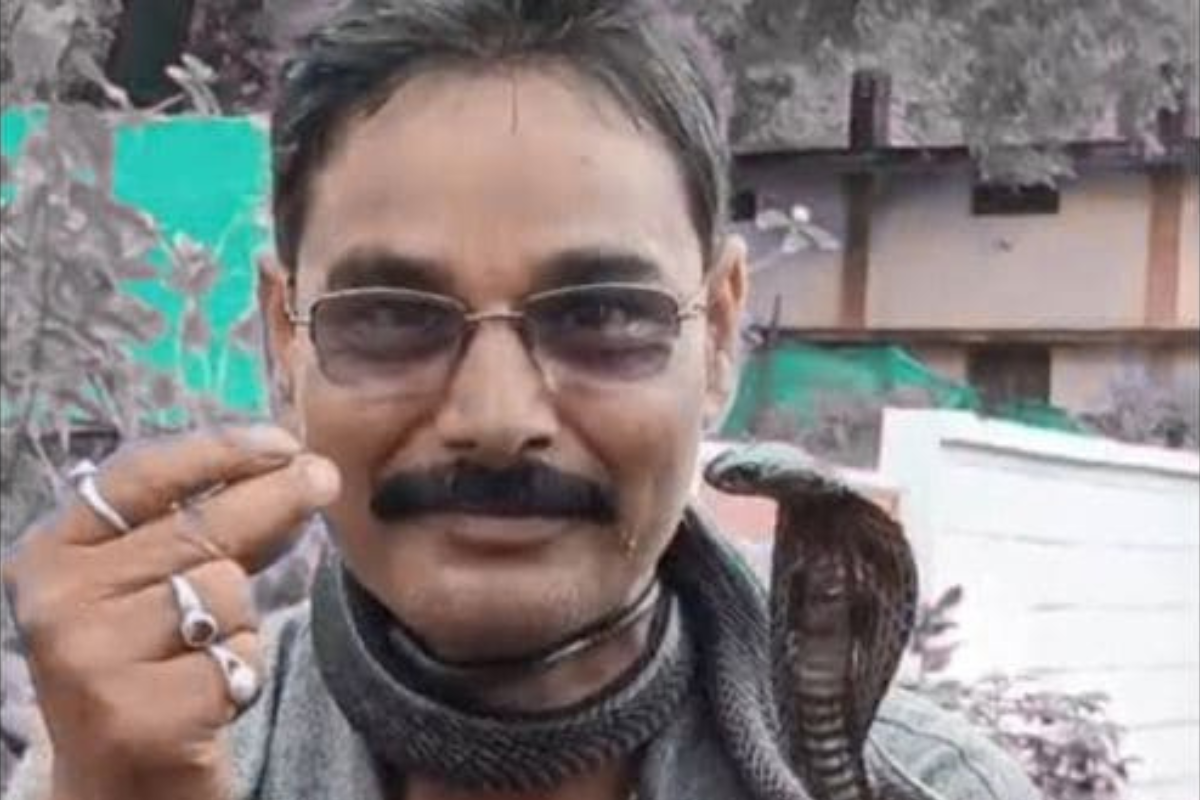Deepak Mahavar, a familiar snake rescuer from Madhya Pradesh’s Guna district, sadly died after being bitten by a cobra he had recently caught. The incident occurred on Monday while he was rushing to attend to a personal emergency.
Rescue Turns Fatal After a Risky Decision
Mahavar, who had spent years removing snakes from homes, farms, and schools, received a call to rescue a venomous Indian cobra in Barbatpura village. After capturing the snake and placing it in a glass container, he received news that his 13-year-old son had been let out early from school. In a hurry to reach his son, Mahavar made the dangerous choice of removing the snake from the container and wrapping it around his neck before riding off on his motorbike.
Cobra Bite Leads to His Death Hours Later
According to police officials, the cobra bit Mahavar on his hand during the ride. Despite the bite, he stayed conscious and called a friend for help. He was first taken to Raghogarh Hospital and then shifted to Guna District Hospital. He showed signs of improvement and was discharged the same evening. However, by midnight, his condition worsened. When brought back to the hospital, it was too late—he passed away before further treatment could begin.
A Self-Taught Hero Leaves Behind Two Children
The 35-year-old worked part-time at JP College and learned snake handling on his own. He was not part of the government’s trained wildlife team but often responded to rescue calls in areas not covered by official teams. Mahavar’s two sons, aged 14 and 12, are left behind after his passing. Their mother had passed away earlier, making the loss even more heartbreaking for the family.
Why Snake Rescues in Rural India Are Risky
Snakebite incidents often occur in Madhya Pradesh, particularly during the rainy months from June to September. Standing water, farmlands, and clogged drains draw snakes such as cobras, kraits, and vipers. Although trained rescue teams are available, officials say it’s not possible to cover all remote areas. That’s why volunteers like Mahavar play an important role, even though many lack proper safety tools or formal training.
Lack of Equipment and Training Proves Costly
Guna’s Divisional Forest Officer, Akshay Rathore, confirmed that Mahavar wasn’t part of their trained team. He added that official snake handlers are taught to use tools like hooks and gloves and are not supposed to handle snakes directly. By wrapping the snake around his neck, Mahavar ignored standard safety measures—a risky move that ultimately proved fatal.
Thousands Die from Snakebites in Madhya Pradesh
According to a government-backed study, over 5,700 people in Madhya Pradesh died due to snakebites between 2020 and 2022. Experts say the actual number might be even greater than reported. Many deaths occur because victims don’t receive timely medical care or follow incorrect first-aid steps. The state is home to all four major venomous snakes found in India, including the Indian cobra and Russell’s viper.



